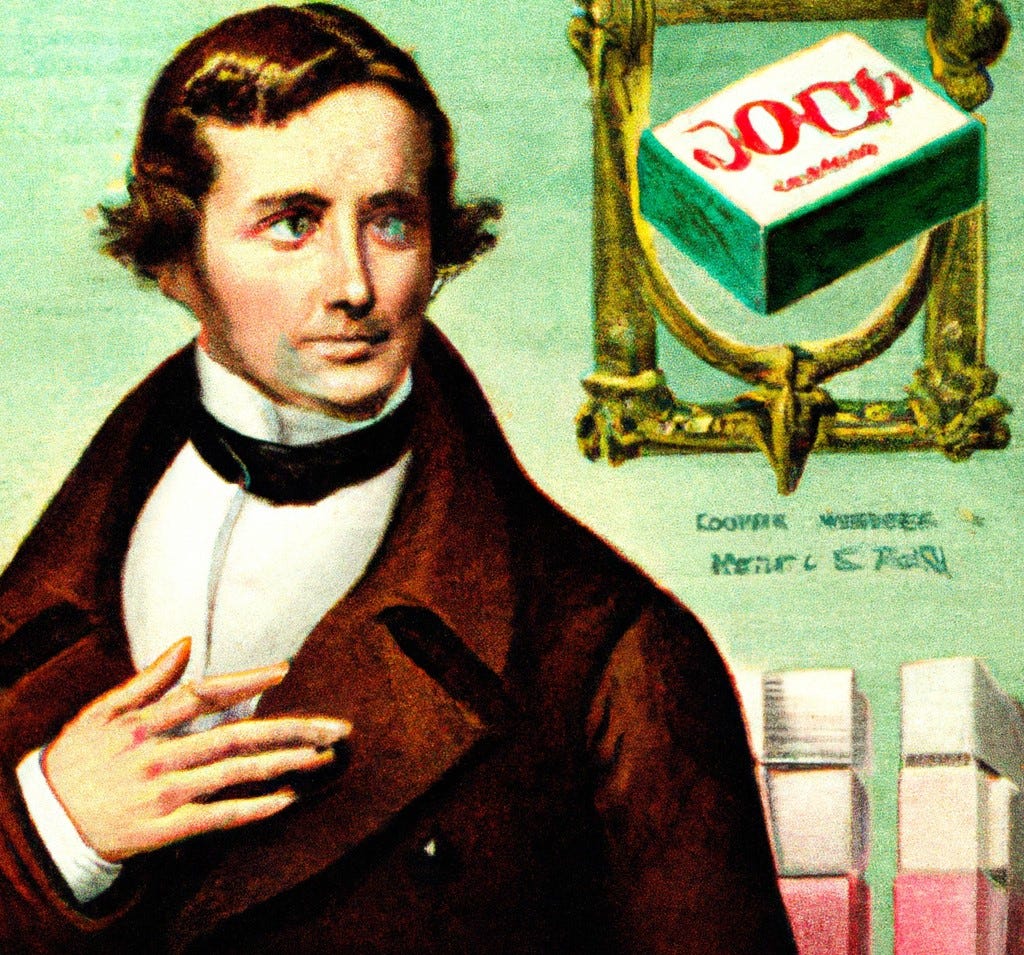One day we'll wash our hands of the anti-tech agit-prop (but this is not that day)
Cranky "tech won't save us" hysterics aren't new, and they never age well.
The cranky "tech won't save us" hysterics aren't new. In past generations, people scoffed at telescopes, microscopes, airplanes, elevators, plastics, soaps, medicines, typewriters, microphones, cameras, the internet, and every other technological leap. You know what else is technology? The alphabet!
At the risk of distracting you before I even get into this post, I’m going to recommend this fun article in the Pessimists Archive Newsletter.
Flat earthers wouldn’t have been mocked a thousand years ago, because who could prove they were wrong? What’s funny about them in current times is that they hold fast to a narrative in spite of all evidence to the contrary. That’s the same programming of the Ragers Against Machines who attract audiences predisposed against one type of tech or another.
Elon Musk is the most obvious target because (1) he’s a billionaire, (2) has some wild sci-fi humanoid ideas, (3) has upended the electric vehicle market, and (4) might actually be an alien.
And so it goes, that if Musk says something like “humans could colonize Mars,” then the blogs light up with “oh, so you think turning your back on earth’s problems and flying off in rocket ships will save us all, got it.” It's behavior that's rewarded by social media algorithms, but divorced from intellectual curiosity. I’m already seeing some Substacks pop up in this anti-tech genre, so it’ll be interesting to see what type of readership they get.
I’m interested because these issues are ultimately about human flourishing. There’s always a connection to the spaces we occupy, development patterns, and how we get around.
Hating on tech for the sake of hating on tech is falling in love with a solution, rather than a problem. There’s no possibility of adapting to new information when you’re driven by the narrative. And so while the agit-prop blares,
mobile phones are used to track the lost and stranded.
plastic containers are used to transport clean water.
batteries are powering cargo bicycles that can replace SUVs.
housing policy is being rewritten based on examples shared on the internet.
backyard gardens and urban farming are nurtured by social media.
Part of me doesn’t want to give techno flat earthers any attention at all, but some of them are influential. And so, I will apply Saul Alinsky’s rule #5 for radicals: Ridicule is man's most potent weapon. Here’s me slipping into the shoes of someone compelled to protect us from wealthy technologists and their gizmos.
The Soap Hoax: Delusions of a Clean Tech Bro
From the Depths of Ignorance to the Heights of Absurdity, Unveiling the Soap Charlatan's Grand Deception
For you to understand the truth of the clean tech sector, I have no choice but to take you through the murky depths of technological deceit. For the last 18 months, I have been reporting on the delusions of a so-called genius—a clean tech bro on a quest to reshape the world with his latest waste of space and time.
Henry B. Rinsy, a self-proclaimed visionary, is the embodiment of misguided ambition and misplaced intelligence. This so-called tech bro, with his pomaded hair and extravagant waistcoat, proclaims himself a literal savior of mankind with his soap brick.
Before Rinsy can collect your hard-earned coins, he has to convince you there’s a reason to throw money at his big tech. He would have you believe that invisible creatures smaller than ants are responsible for our ailments, our coughs, and our fevers. He’s an atheist who’s blaming demons for sickness. Haven’t we had enough of his type? The audacity of this upstart to expect us to pay him to ward off phantoms. I can hear him now: “Smear this on your hands and it’ll cure your palsy!”
Rinsy doesn’t stop at stories of dirt demons. No, he insists that his precious soap—a concoction of animal fat, chemicals, and fragrances—holds the key to wellness and long life.
What drives this conniving charlatan? Is it a genuine desire to better the lives of the common folk, or a thinly veiled ploy to amass riches beyond imagination? One cannot help but wonder if Rinsy's real intention is to line his own pockets, exploiting the fears and naivety of the unsuspecting populace. Some land barons are already falling for the smooth-tongued rhetoric of this fraudster.
Alas, no one is talking about the dangers of this technology. Leading scientists explained to me that soap has caustic properties that have the potential to harm our delicate skin, leaving it dry, cracked, and irritated. Yet Rinsy, in his otherworldly wisdom, expects us to believe that subjecting ourselves to this torment will miraculously shield us from coughs and colds, and even extend our life. The business of witchcraft knows no bounds.
In the face of Henry B. Rinsy's grand deception, we must stand firm. We must resist the allure of this clean tech bro, for his promises are as empty as the bubbles he peddles. Don’t believe the fear-mongering and the whims of self-proclaimed geniuses who obviously want to exploit us.
Any rational person will agree tech won’t save us.





This is a lengthy way to miss the point presented by tech skeptics - who are often deeply knowledgeable tech *pioneers*. I see you're dunking on Paris Marx, but you're also dismissing the likes of Cory Doctorow, who no-one could accuse of being a techphobe. You're doing what a lot of people do, which is dismiss tech skeptics as Luddites without looking into who the Luddites actually were and what they stood for.
I look forward to hearing more on this.